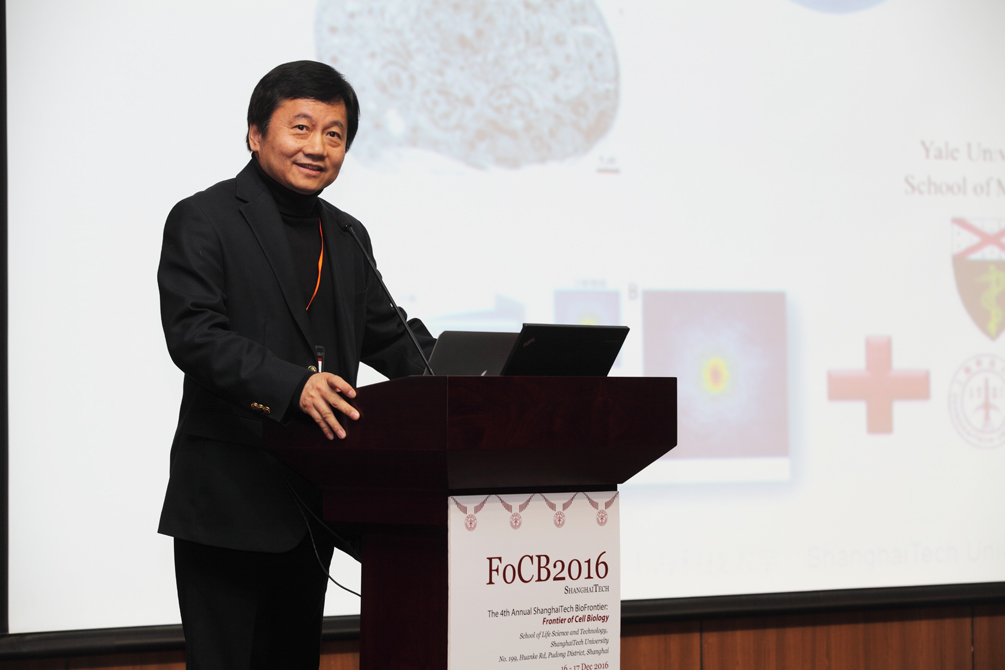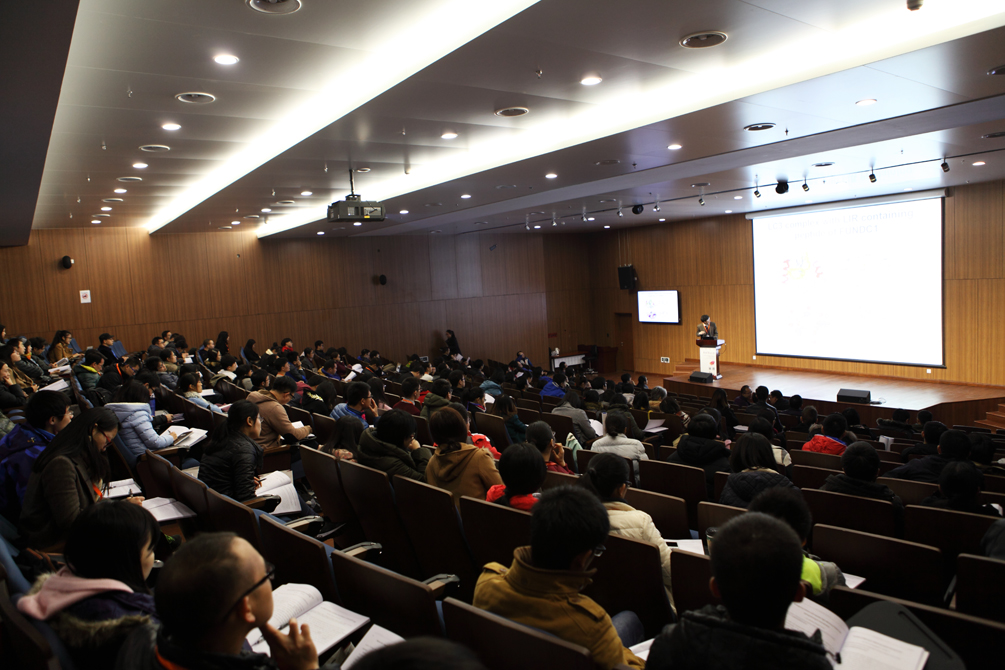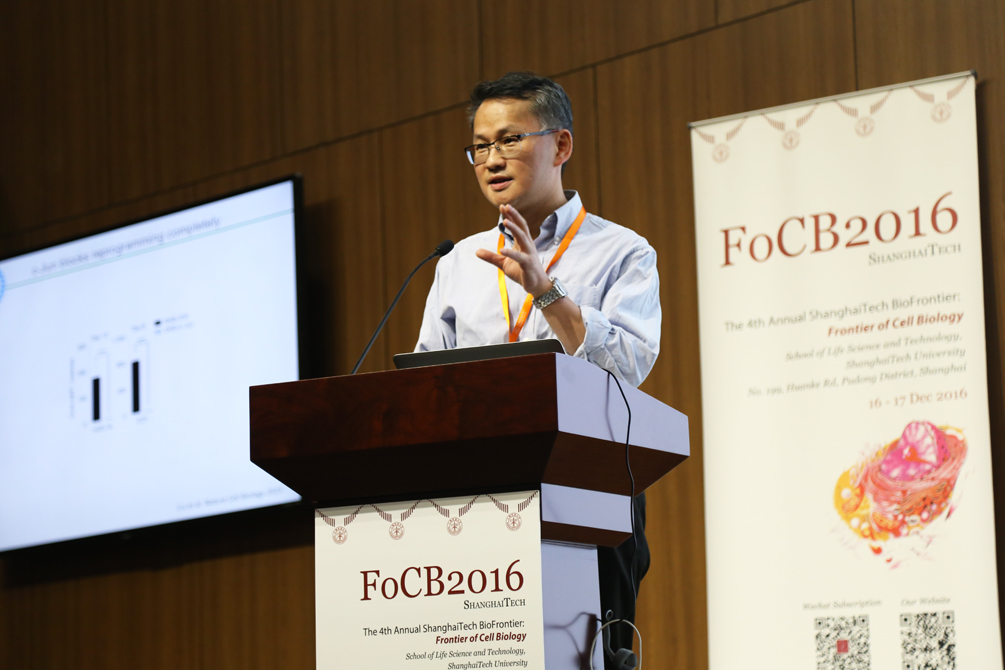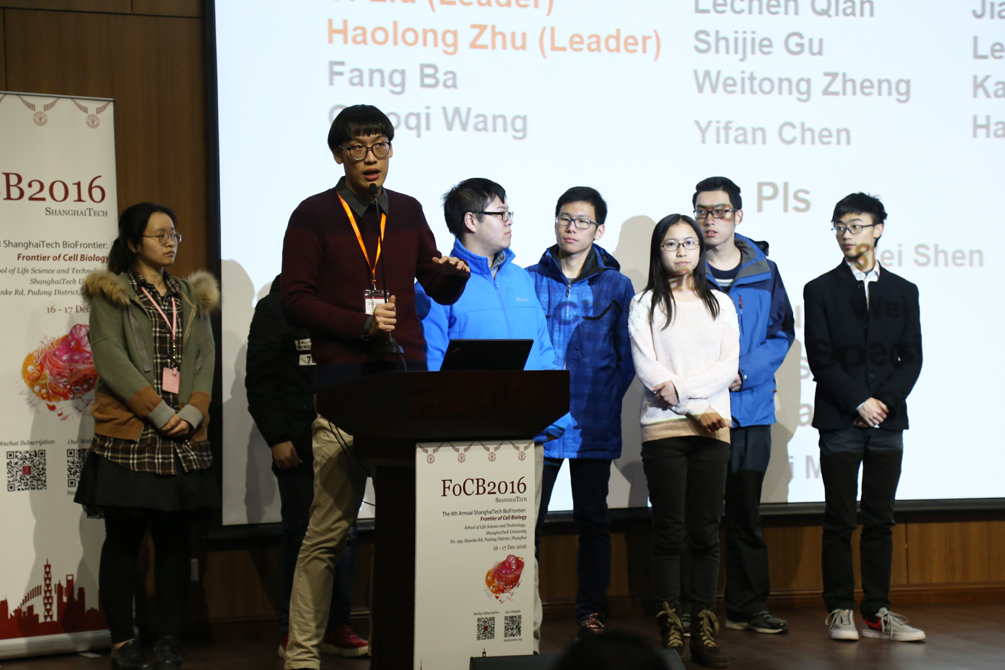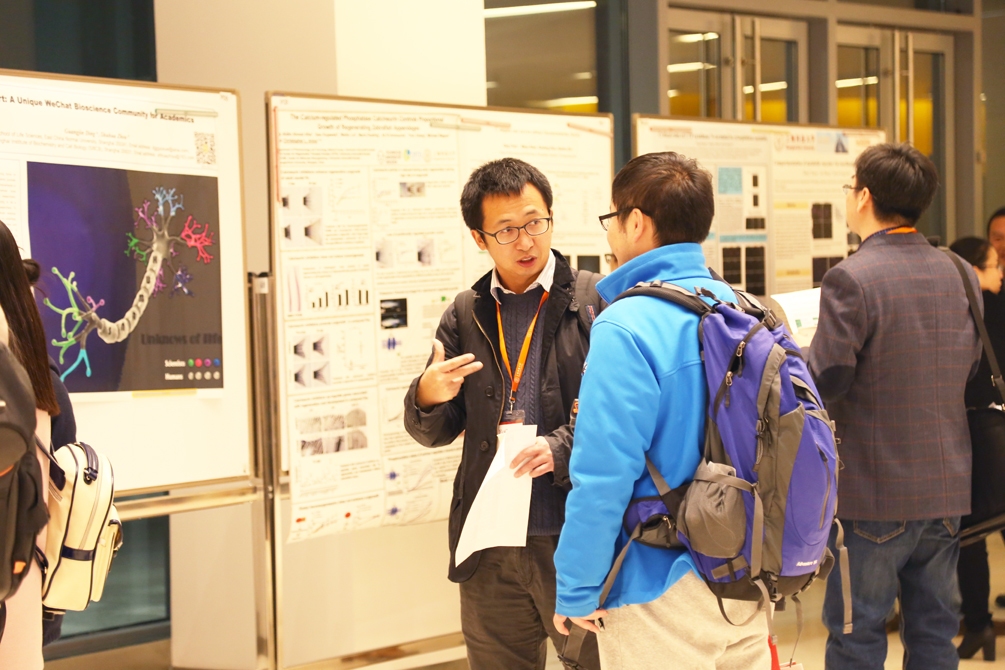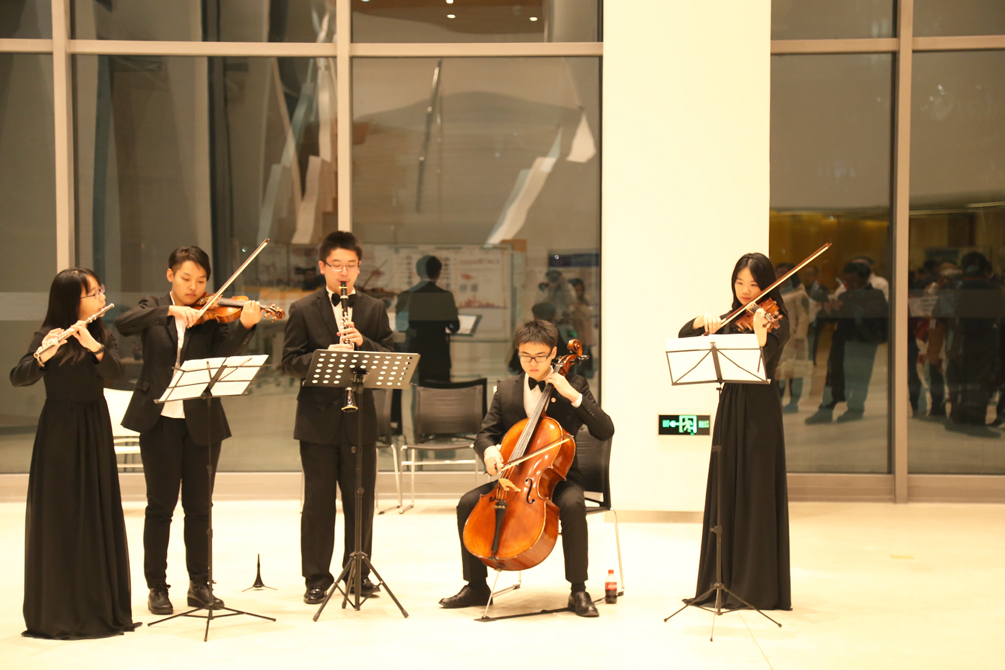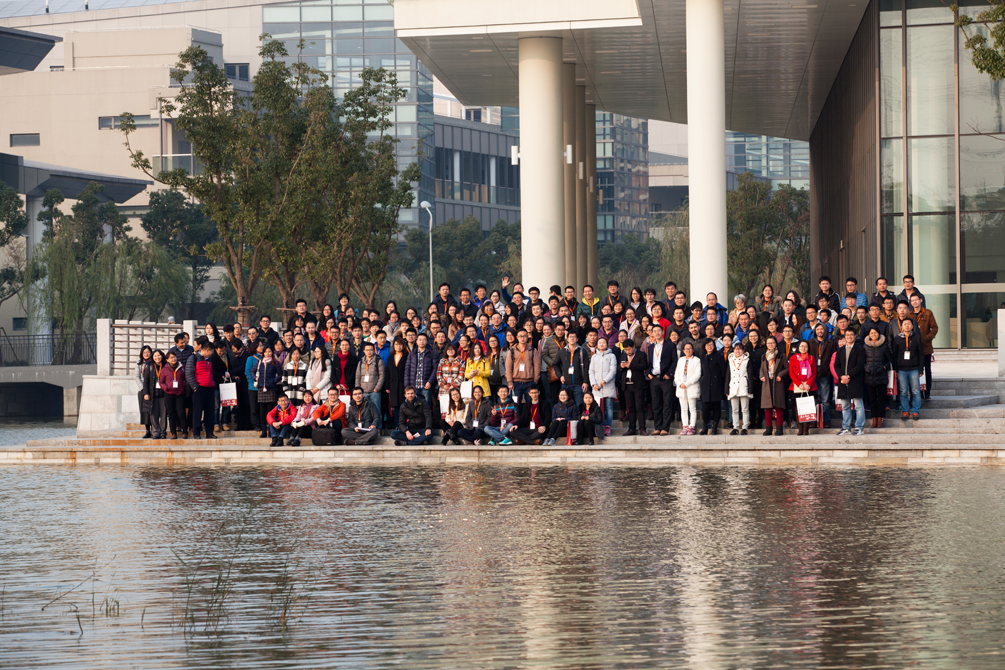ShanghaiTech University’s School of Life Science and Technology held its 4th Annual Forum -- Frontier of Cell Biology (FoCB2016) on December 16-17th. About 400 researchers from leading academic institutions and pharmaceutical companies gathered at the two-day event to present and discuss cutting-edge progress in the field of cell biology.
ShanghaiTech University Vice President and Provost Professor Yin Jie delivered the opening remarks. He proudly introduced the dramatic progress that ShanghaiTech University has achieved since it was founded three and a half years ago. School of Life Science and Technology (SLST) Dean Professor Lin Haifan briefly introduced SLST before thanking the organizing committee and volunteers and welcoming all the participants.
22 speakers from local and national wide institutions including ShanghaiTech University, Shanghai Institutes for Biological Sciences, Institute of Physics, Interdisciplinary Research Center on Biology and Chemistry, Fudan University, East China Normal University, as well as Soochow University, Zhejiang University, Nanjing University, Peking University, Huazhong University of Science and Technology, Nankai University, and the Chinese University of Hong Kong, shared their latest research progress in molecular cell biology, systems cell biology, medical cell biology, physical cell biology and developmental cell biology.
The forum also invited two winning teams from iGEM (the International Genetically Engineered Machine Competition). These SLST undergraduate student teams had just won Gold and a Silver Medals in the international competition.
43 poster presenters introduced their research to the audience during the poster session along with the performance of a volunteer mini orchestra made up of ShanghaiTech undergraduate students. 12 Best Poster Award winners were selected by onsite voting to give flash talks on the second day.
The annual SLST forum has been held since 2013 with different topics each year. It is designed to build a platform for academic interaction and research cooperation for our young scientists.
